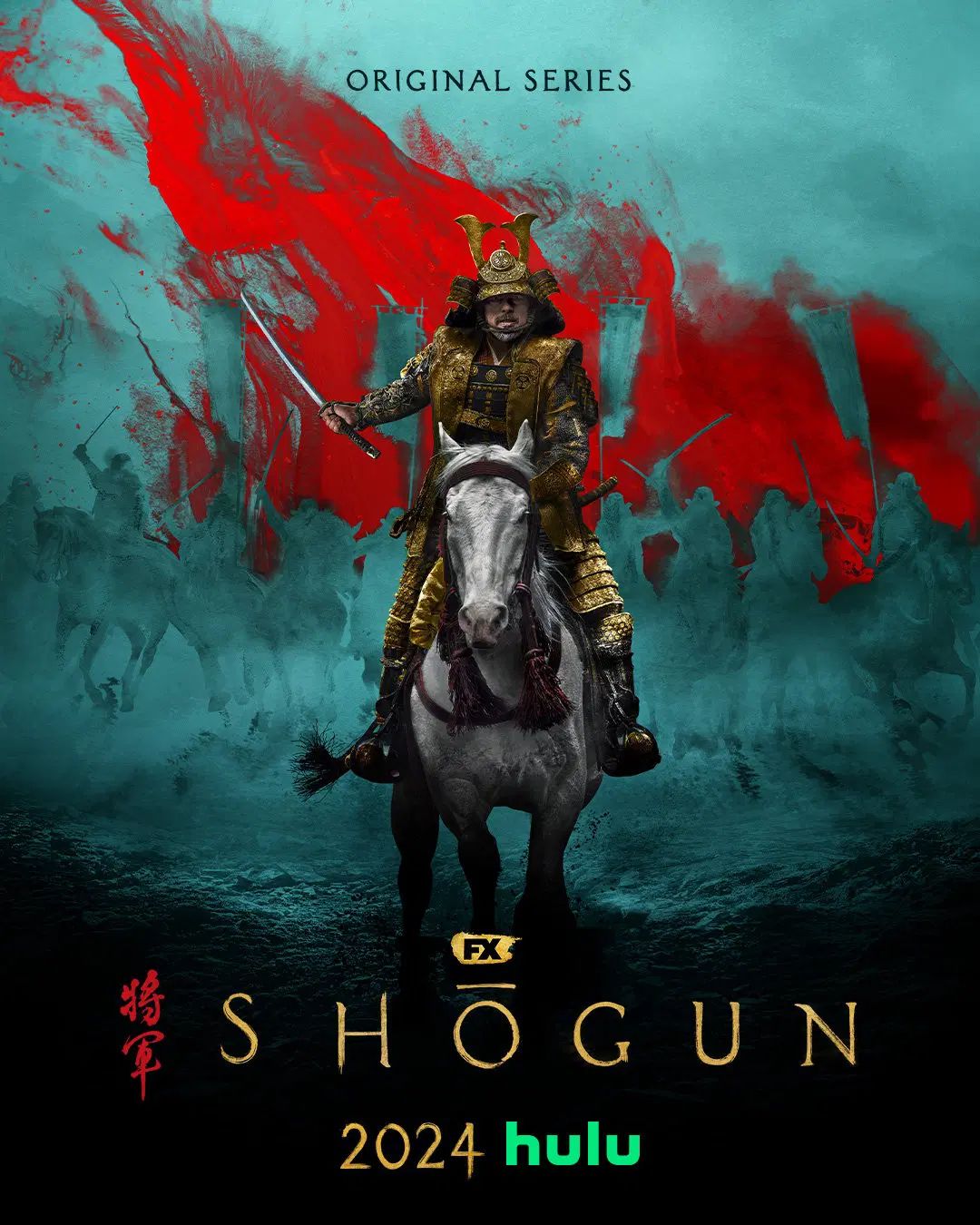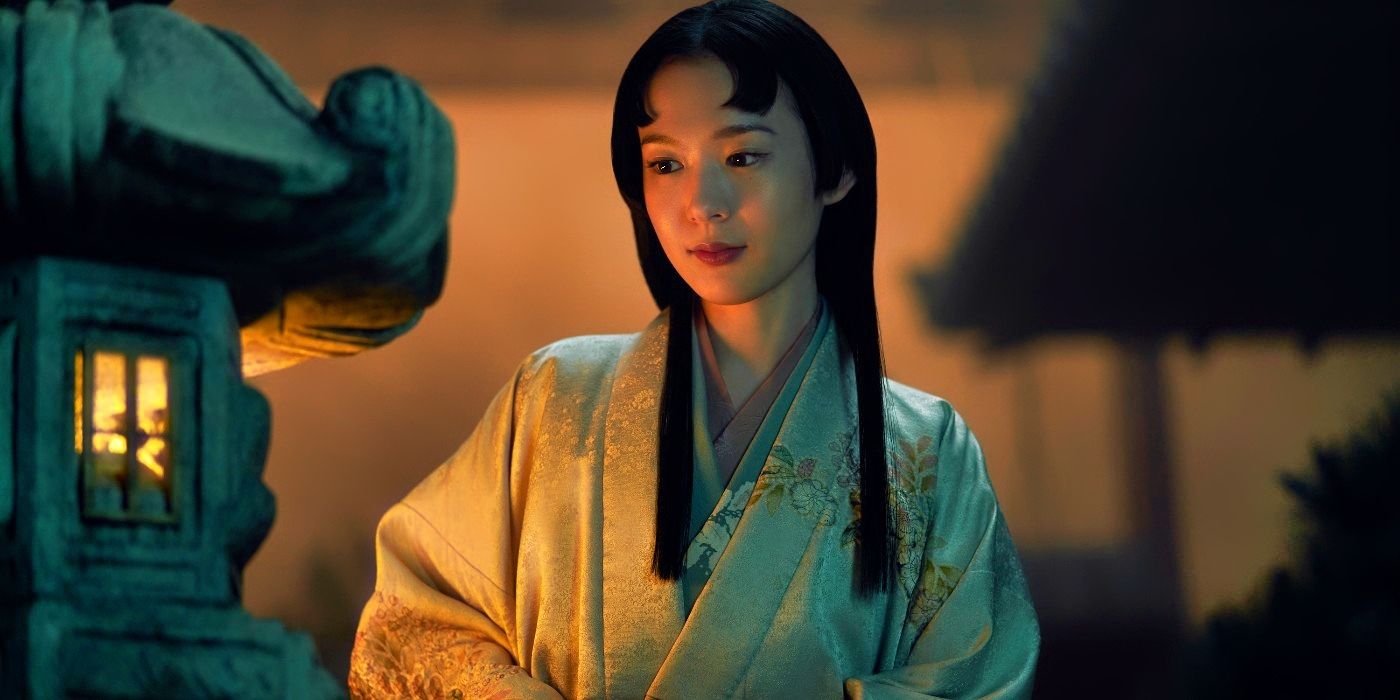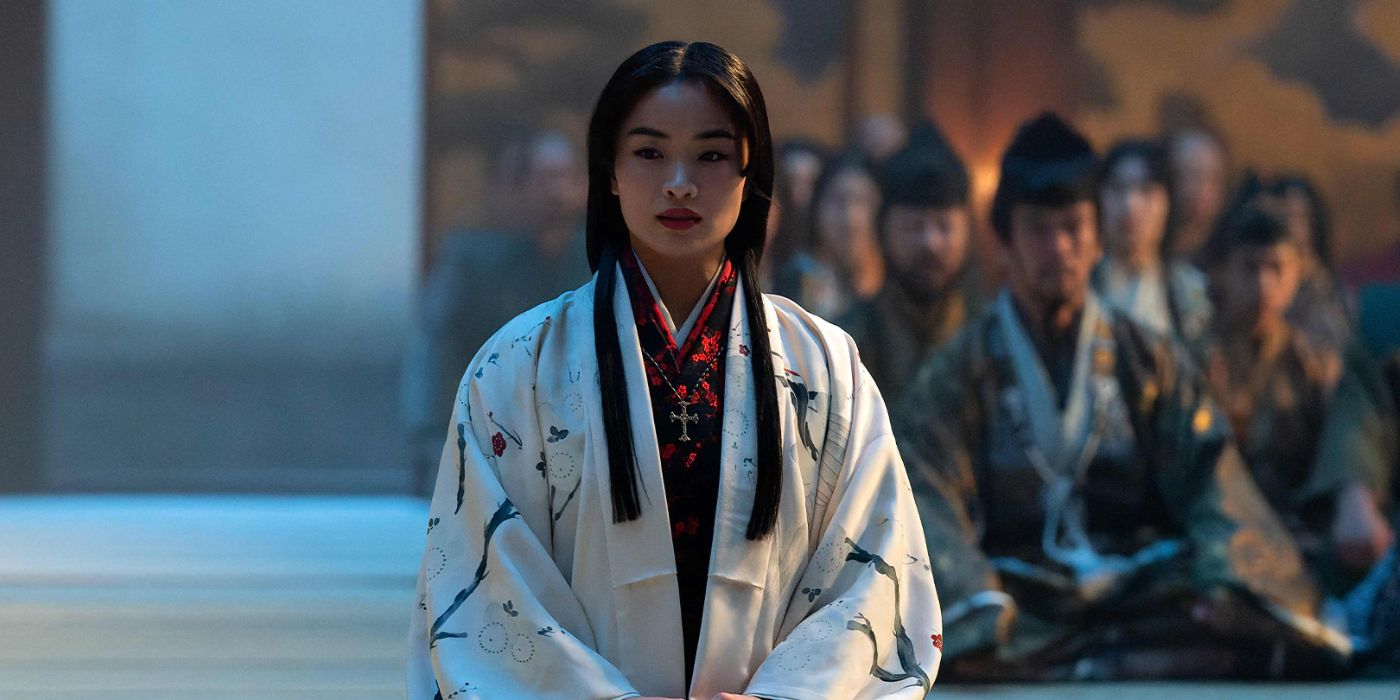Editor’s note: The below contains spoilers for Shōgun Episode 9.
The Big Picture
- Lady Toda Mariko emerges as
Shōgun
‘s main character and hero during the series’ penultimate episode, “Crimson Sky.” - Mariko’s lifelong fight highlights
Shōgun
‘s core themes of nobility and sacrifice and provides the series’ necessary heart. - Even though Mariko dies, she reclaims her agency throughout Episode 9, and her sacrifice defines Japan’s future.
In a story inspired by a historical civil war, there are few heroes. Within Shōgun‘s morally gray space, a place where corruption spreads like a weed and takes many forms, who’s the main character? If you ask the original Shōgun miniseries, the answer is undoubtedly John Blackthorne (Richard Chamberlain). He gets the screentime, the girl, and an atypical but detailed Hero’s Journey — and he’s the white man Western media prizes. FX’s adaptation, via Justin Marks and Rachel Kondo, blurs lines for the better. Their John Blackthorne (Cosmo Jarvis) doesn’t dominate the action, and his frustration over his forced passivity leads to questionable choices. Lord Yoshii Toranaga (Hiroyuki Sanada) seems like a natural fit, but the more glances viewers get at his covert mind, the less trustworthy he becomes.
In “Crimson Sky,” the series’ penultimate episode, Shōgun makes one matter emphatically clear: this has always been Lady Toda Mariko’s (Anna Sawai) story. Like a quality tactician, the series balanced on a knife’s edge for eight episodes before revealing its hand. The figure who completes Shōgun‘s triumvirate ceases to hide in the shadows. In Episode 9, Mariko seizes her agency by accepting fate’s decree on her terms. Spoilers for history, but her heartbreaking death, both a demand for justice and a protective sacrifice (not to mention a subverted inevitability), defines her country’s future for centuries. No character has proven more pivotal to the shape of Shōgun‘s dramatic impetus. Mariko is Crimson Sky, a warrior silenced no longer, whose final act propels the series into its own closing act with appropriate volatility.

Shogun (2024)
When a mysterious European ship is found marooned in a nearby fishing village, Lord Yoshii Toranaga discovers secrets that could tip the scales of power and devastate his enemies.
- Release Date
- February 27, 2024
- Main Genre
- Drama
- Seasons
- 1
Mariko Is ‘Shōgun’s Greatest Weapon
On the heels of Shōgun dealing Toranaga back-to-back tragedies, the master strategist’s most perilously delicate and make-or-break move falls to his right-hand woman. Toranaga sends his most valuable vassal, his translator (the repeater of others’ words who also has the power to shape them — talk about thematic!), to do what no one else could. Mariko infiltrates their enemies’ stronghold and intimidates with performative intentions, and her death will unite the country’s scattered remnants. Talk about a one-woman army. She plays the game with a nobility the realm’s highest lords lack and at levels these men can’t begin to comprehend.
It should come as no surprise, since Mariko has spent eight episodes as a readied weapon made for this scenario. Her broken heart reveals Shōgun‘s foundation: nobility versus corruption, free will versus destiny, the singular human effects of history’s unstoppable socioeconomic evolution. Beyond that, her family’s actions let the plot unfold. Her father was a revolutionary who overthrew a tyrannical ruler. Other historians would label him a hero. But history is too often written by the winners, and they made Akechi Jinsai execute his family and take his life through seppuku. Fast-forward 14 years, and greed’s cyclical nature has come back around. The Regents are no better, squabbling for power at the expense of the people they’re supposed to serve. If Akechi Jinsai lived, he would be moved to action.
Before now, action was precisely what Mariko could not take. She’s a woman restricted to moving within carefully monitored spaces. Mariko might exert the surprisingly powerful but limited influence she possesses, but she’s trapped within the confines of everyone else’s games. These are the groups who suffer while the leaders decide. Translators, wives, women: sometimes, these figures are the power behind the throne. Most of the time, they lead the frontlines or don’t steal history’s spotlight.
Mariko Reclaims Her Agency Through Words and Deeds on ‘Shōgun’
Mariko sagely told Toranaga that “a woman is simply at war,” and she has spent 14 years fighting. Episode 9 marks the point when her resistance reaches its height. Akechi Jinsai’s daughter inherited his revolutionary streak. Lady Ochiba (Fumi Nikaidō) calls Mariko’s opening salvo “her vengeance,” and it’s not untrue, even if Ochiba misreads her old friend. She assumes Mariko plans to take Osaka down with her so Mariko can free herself from her personal misery and disgrace. Yes, Mariko’s every breath stabs like someone who lives with glass embedded in their heart; she has been trialed, tested, and remade by tragedy. But her motivations are uncomplicated by selfishness. Mariko will serve her liege lord for the greater good, she will avenge the injustice committed against her family, and she gives her life to protect the innocent. She represents humanity’s best. Shōgun honors Mariko’s rich inner life and centers her tragedies without exploiting her turmoil.
And yet — without contradicting herself, Mariko’s journey is about freedom. It’s an act of protest, wanting to follow her family in death. In Episode 9’s opening flashback, a pregnant Mariko grieves them enough to flee into the snow. Her husband Buntaro (Shinnosuke Abe) forces her to live instead of honoring her wishes, but what does Mariko live for? She cannot serve her family and therefore cannot serve herself. When Shōgun‘s timeline begins, Mariko seems purposeless. By serving Toranaga, Mariko recontextualizes and redefines her existing goal: continuing her father’s fight in his name, through her name.
1:31

One of ‘Shōgun’s Best Characters Is Hiding in Plain Sight
Even if she’s not a samurai, this fan-favorite character can steal a scene with just a look.
Despite the women of the Sengoku period holding progressive power, Mariko’s words have been her sole autonomous outlet. Everyone obeys a feudalistic society, within which Buntaro owns Mariko. She shatters these former conventions by asserting her will in front of the Regents without contrition. Every word is Mariko’s own for the first time since her father married her to Buntaro; she declares, “I will never be captive, or hostage, or confined.” Just because her statement is a part of a plan, a performance for the lords’ benefit, doesn’t make it less true. Even though her father is a convicted traitor, Mariko holds Osaka in the palm of her hand. The noblewoman renowned for her poetry turns every word into a spear. Mariko reclaims her power, and it fits her like a forged blade — convenient, since she’s a samurai descended from warriors.
In Collider’s exclusive interview with Anna Sawai, the actress said:
“I like that scene because we get to see her in a very, very different light. She’s allowed to say all this stuff. She’s allowed to rebel against what’s happening, and that’s the first time we see her vocalizing it and giving the attitude that she had to keep concealed. So it wasn’t too tough [to film] — more liberating.”
‘Shōgun’ Episode 9 Honors Mariko’s Strength
When Mariko advances toward the castle gates, no matter how many arrows rain down, she never flinches. Mariko has already spent her life avoiding arrows, both literally and metaphorically. Her walk is 14 years’ worth of fury, heartbreak, and defiance, measured in inches. Her poised, streamlined, and indomitable rage — about her family’s tragedy, her role in society, and the Council’s abuse of power — is both pulverizing and cathartic.
“Everything that she does feel emotionally when she’s on the ground, that’s shame,” Sawai added during her Collider interview. “She comes from a family where she’s been treated with respect. There’s everything about her father, but she’s not a servant — and it is an embarrassment for her to also not be able to serve her lord. So we see her going through that, but it’s all part of the plan.”
Episode 9 empowers Mariko through honesty: depicting what she’s truly capable of within this limiting historical setting. Doing so frees emotions and aspects Mariko kept under guard for so long. Viewers can doubt Toranaga’s sincerity, but Mariko isn’t naively dancing to his tune. Her story involves men; her journey belongs to her. If Crimson Sky couldn’t exist without Mariko, then Shōgun wouldn’t satisfy without the nuanced woman powering its heartbeat.
‘Shōgun’ Has Always Been About Mariko
In a fairer world than Shōgun depicts, Mariko deserves to live. She can’t quite “divorce my husband and get together with Blackthorne,” as Anna Sawai put it. It’s heartbreaking that one of Shōgun‘s key players, especially one drawn empathetically and resting upon Anna Sawai’s potent shoulders, can’t circumvent fate one last time. Still, Mariko’s perspective differs from traditional Western philosophies. For her, death’s inescapability makes existence meaningful, and seppuku is an ancient tradition. In a way, it’s difficult to call “Crimson Sky” a celebration of Mariko’s life, given its unrelenting horror, but Episode 9 is indeed that. It’s entirely about her and the pivotal moment (moments, really) the series has built toward. Episode 9 unravels her every connection before folding them back into the essential whole that is Mariko, who happens to be a force of nature.
If Mariko had performed seppuku before Episode 9, Japan’s corrupt leaders would barely have noticed. Bracing herself against the warehouse door places Mariko’s agency back in her hands. Her sacrificial death transcends any notions of self — “if freedom is all you live for,” she once told Blackthorne, “then you’ll never be free of yourself” — while still achieving her long-awaited protest, this time against a different cruel overlord. She rescues innocents, primarily other women. This is how she can move in this world, and she seizes it. Mariko had her vengeance.
Even though Mariko has been both the leafless branch and the falling flower, no longer is she the former. Her actions shatter her chains and loosen dozens — thousands — of others’ bindings. Mariko serves her country, making her one of the few Shōgun characters truly working for Japan’s betterment. And with her final breath, Mariko reclaims her power, her purpose on this earth, and her identity. She calls herself by her birth name, “Akechi Mariko.” Mariko has always been the series’ heart. Shōgun turns itself into her story, but not before she makes it hers first.
The finale of Shōgun premieres Tuesday on FX and Hulu in the U.S.


